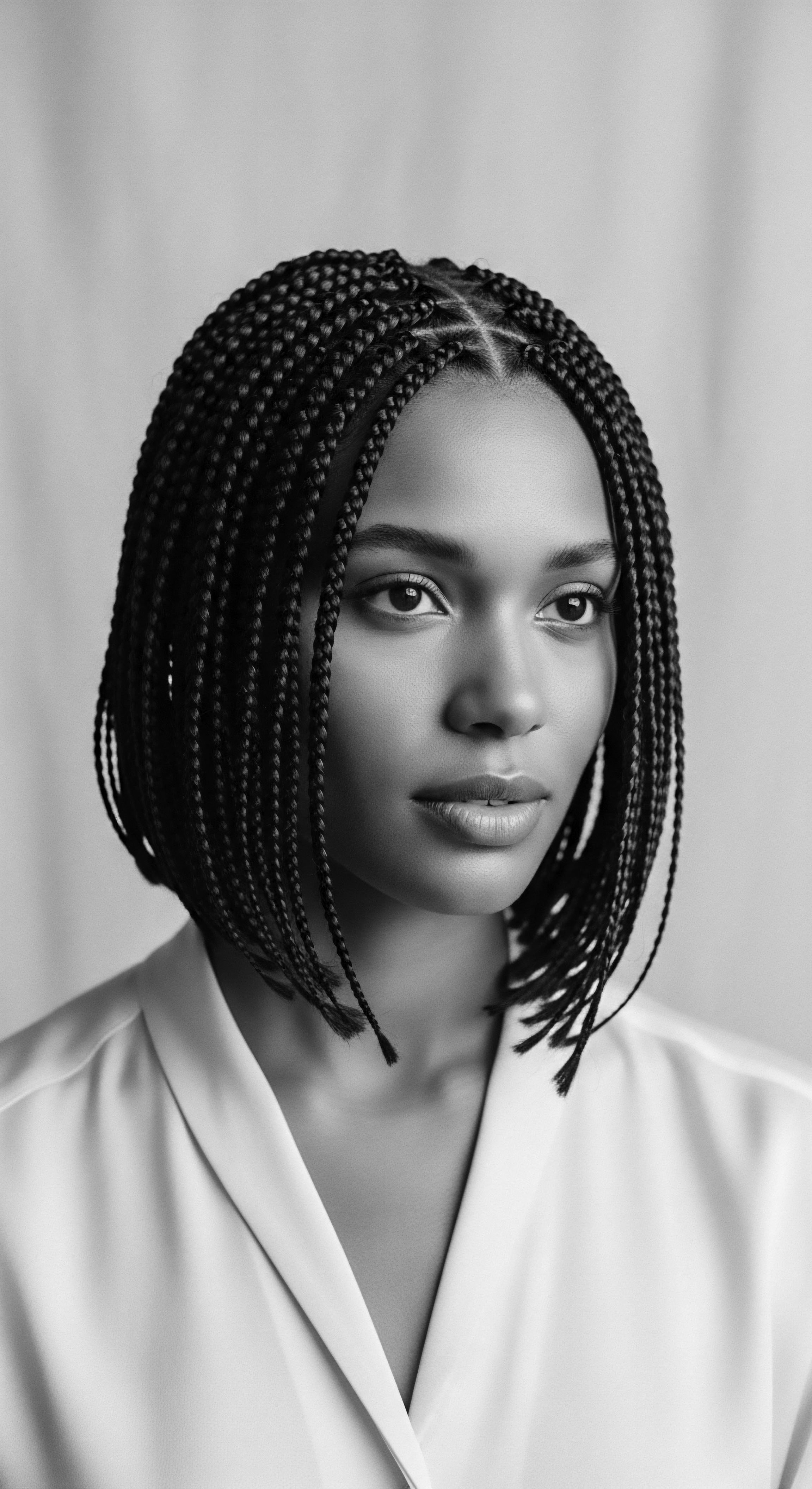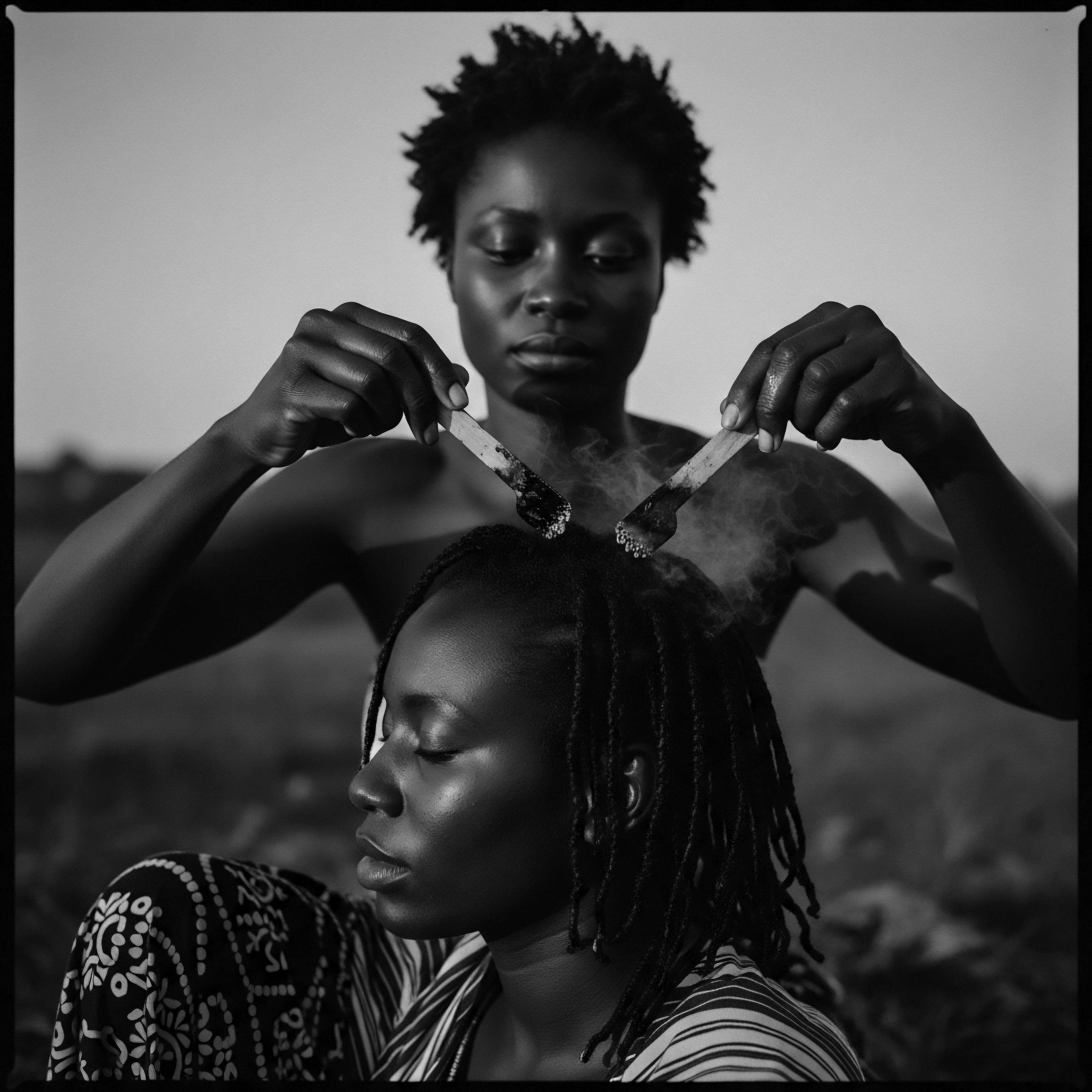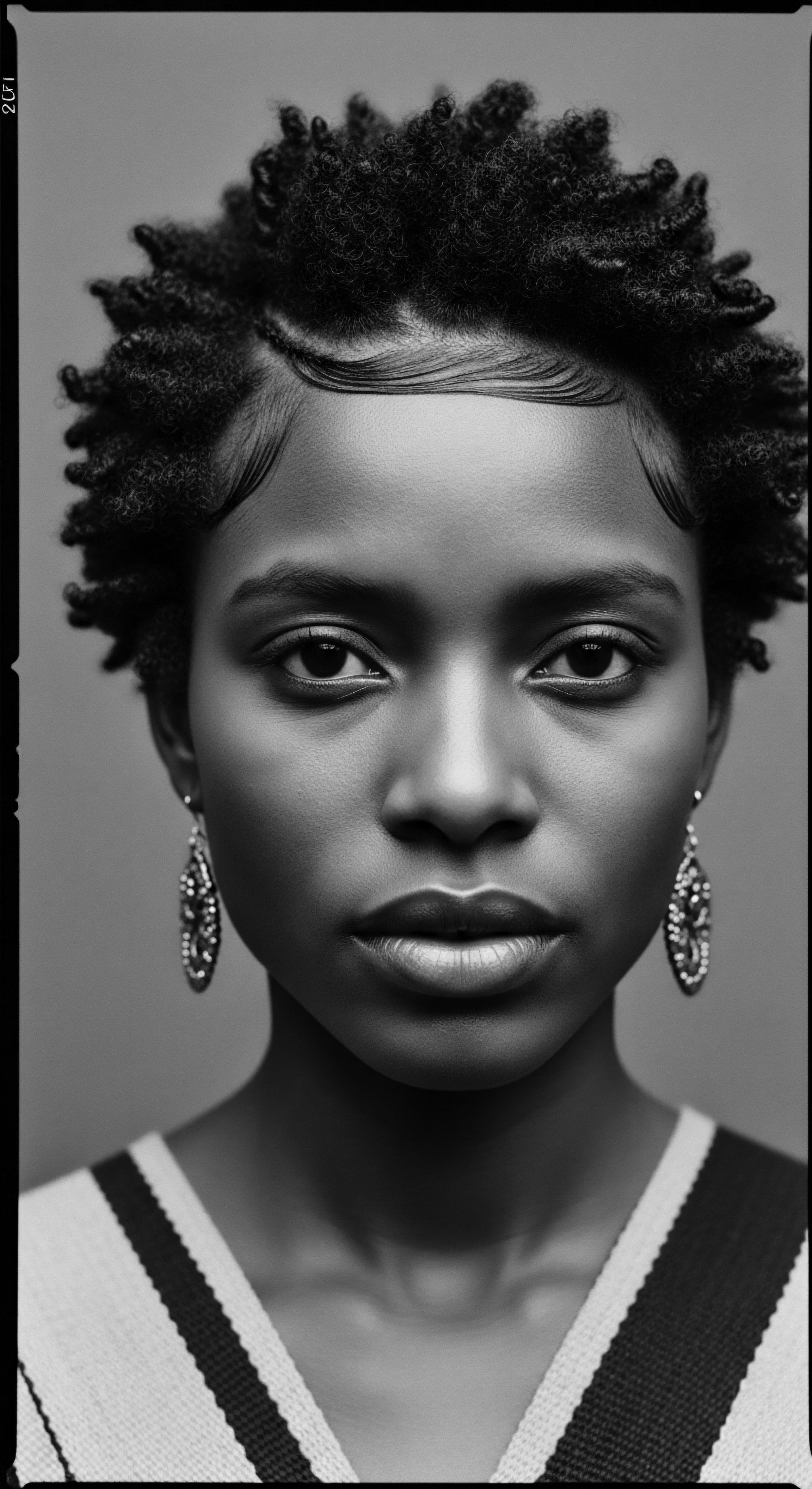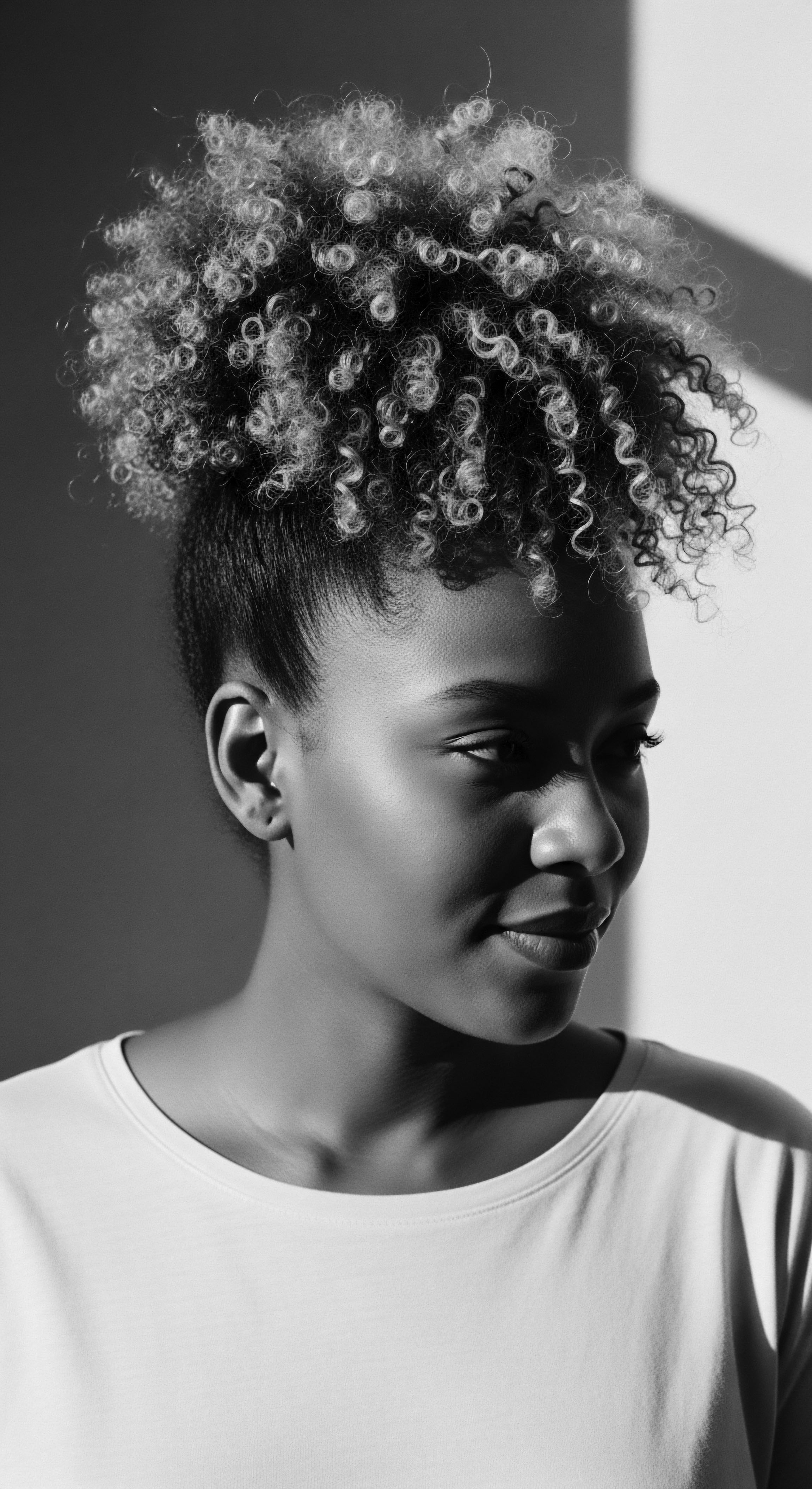
Fundamentals
The term “African Cleansing” within Roothea’s living library denotes a deeply rooted approach to hair and scalp purification, nourishment, and spiritual alignment, drawing upon centuries of indigenous African and diasporic wisdom. This concept extends far beyond mere superficial hygiene; it encompasses a holistic system of care that prioritizes the hair’s inherent texture, its profound connection to identity, and the unbroken lineage of ancestral practices. Rather than a harsh stripping of natural oils, African Cleansing represents a restorative process, seeking balance and reverence for the hair’s vitality. It is a mindful engagement with natural elements, communal rituals, and a profound respect for the wisdom passed down through generations.

Echoes from the Source: Ancient Practices and Elemental Biology
From the dawn of human history, hair has served as a powerful canvas for identity and communication across African societies. Early civilizations viewed hair as a sacred extension of the self, a conduit to the divine, and a visual marker of social standing, age, and spiritual beliefs. Cleansing practices in these ancient contexts were not isolated acts; they were integral to a broader system of communal care and cultural expression.
The understanding of hair health was intrinsically linked to the environment, with natural elements providing the foundational ingredients for purification and restoration. This elemental biology recognized the hair’s natural need for gentle care, favoring substances that worked in harmony with its unique structure.
African Cleansing embodies a holistic journey of hair and scalp care, connecting ancestral wisdom with present-day practices.
Traditional methods of hair care in Africa, predating colonial influences, relied on a rich pharmacopeia of indigenous plants and minerals. These natural cleansers were often derived from sources readily available in the local environment, showcasing an intuitive understanding of botany and its benefits for textured hair. For instance, various clays, like Rhassoul clay from Morocco, were utilized for their exceptional ability to draw out impurities and excess sebum without stripping the hair of its essential moisture. This gentle yet effective purification mechanism contrasts sharply with later, harsher cleansing agents introduced through external influences.
Beyond cleansing, these practices incorporated nourishing agents to maintain the hair’s strength and luster. The sap of certain trees, pulverized barks, and specific leaf extracts were carefully prepared and applied. The meticulous preparation of these natural ingredients often involved grinding, soaking, or infusing, processes that were themselves rituals, passed down through oral traditions. This communal aspect of hair care, where women would gather to braid and tend to each other’s hair, sharing stories and wisdom, reinforced social bonds and preserved cultural heritage.
- African Black Soap ❉ Originating from West Africa, this soap is crafted from the dried skins of local vegetation such as cocoa pods, plantain leaves, and shea tree bark. It offers a gentle yet effective cleansing, rich in antioxidants and minerals, nourishing the scalp without stripping natural oils.
- Chebe Powder ❉ Hailing from Chad, this blend of ingredients like lavender crotons and cherry seeds is not primarily a cleanser but a conditioning treatment applied between washes to promote length retention and reduce breakage by sealing in moisture.
- Rooibos Tea ❉ Traditionally grown in South Africa, this caffeine-free tea, when used as a rinse, provides antioxidants and antimicrobial effects, supporting hair growth and enhancing strand quality.
The selection of these natural materials reflected a deep empirical knowledge of their properties. For example, the inclusion of certain plant extracts provided anti-inflammatory benefits for the scalp, while others contributed to the hair’s elasticity and shine. This sophisticated understanding, developed over millennia, forms the fundamental layer of African Cleansing, emphasizing harmony with nature and the preservation of the hair’s innate health.
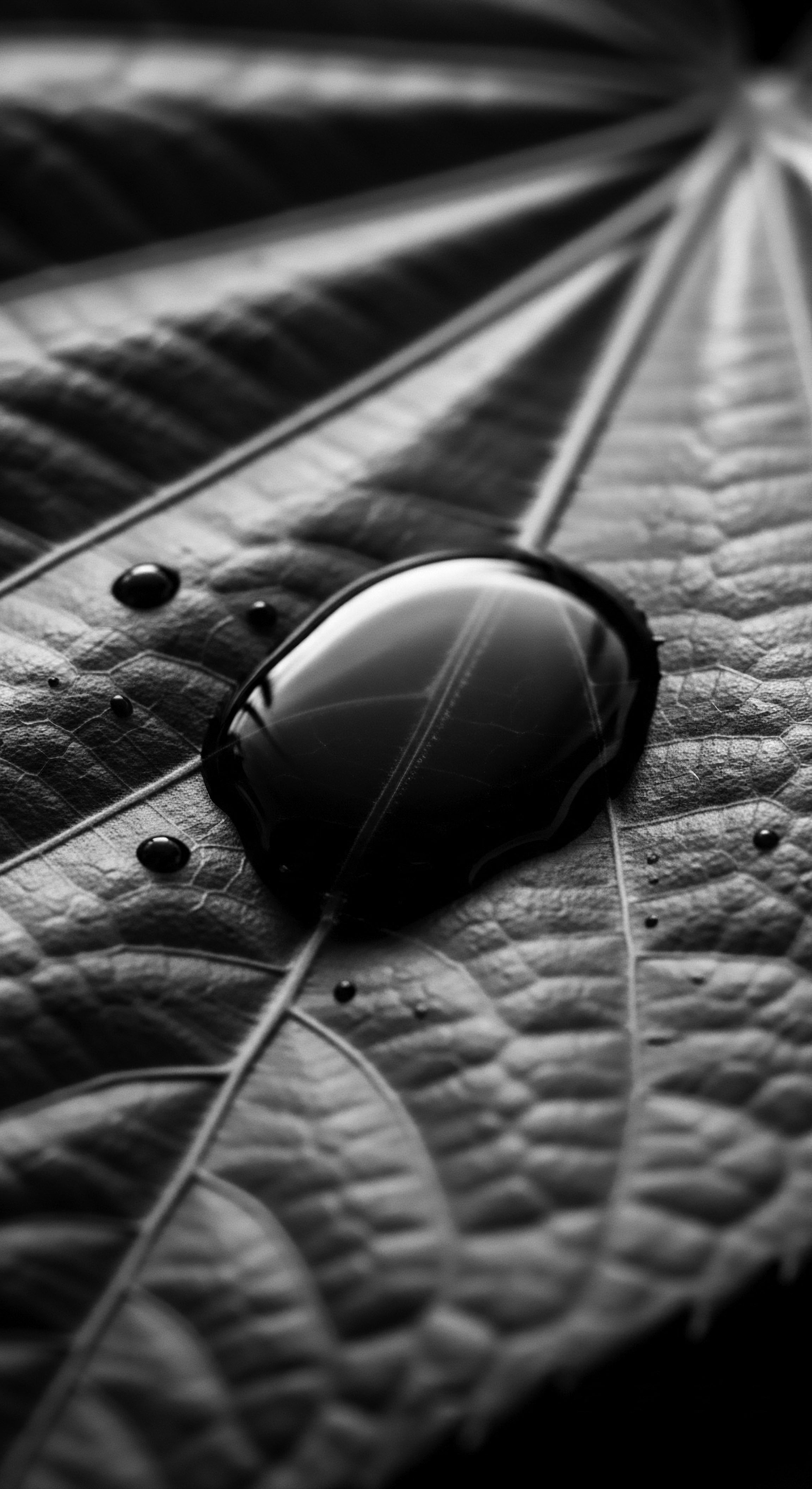
Intermediate
Stepping beyond the elemental, the intermediate understanding of African Cleansing delves into its complex significance within communal life and the tender thread of care that weaves through generations. This is not merely about what was used, but how, why, and by whom. The practices embodied a living philosophy, a continuous dialogue between the individual, their community, and the ancestral realm. Hair care became a communal activity, a space for storytelling, education, and the reinforcement of cultural norms, particularly for Black and mixed-race hair experiences where hair texture holds unique social and historical weight.
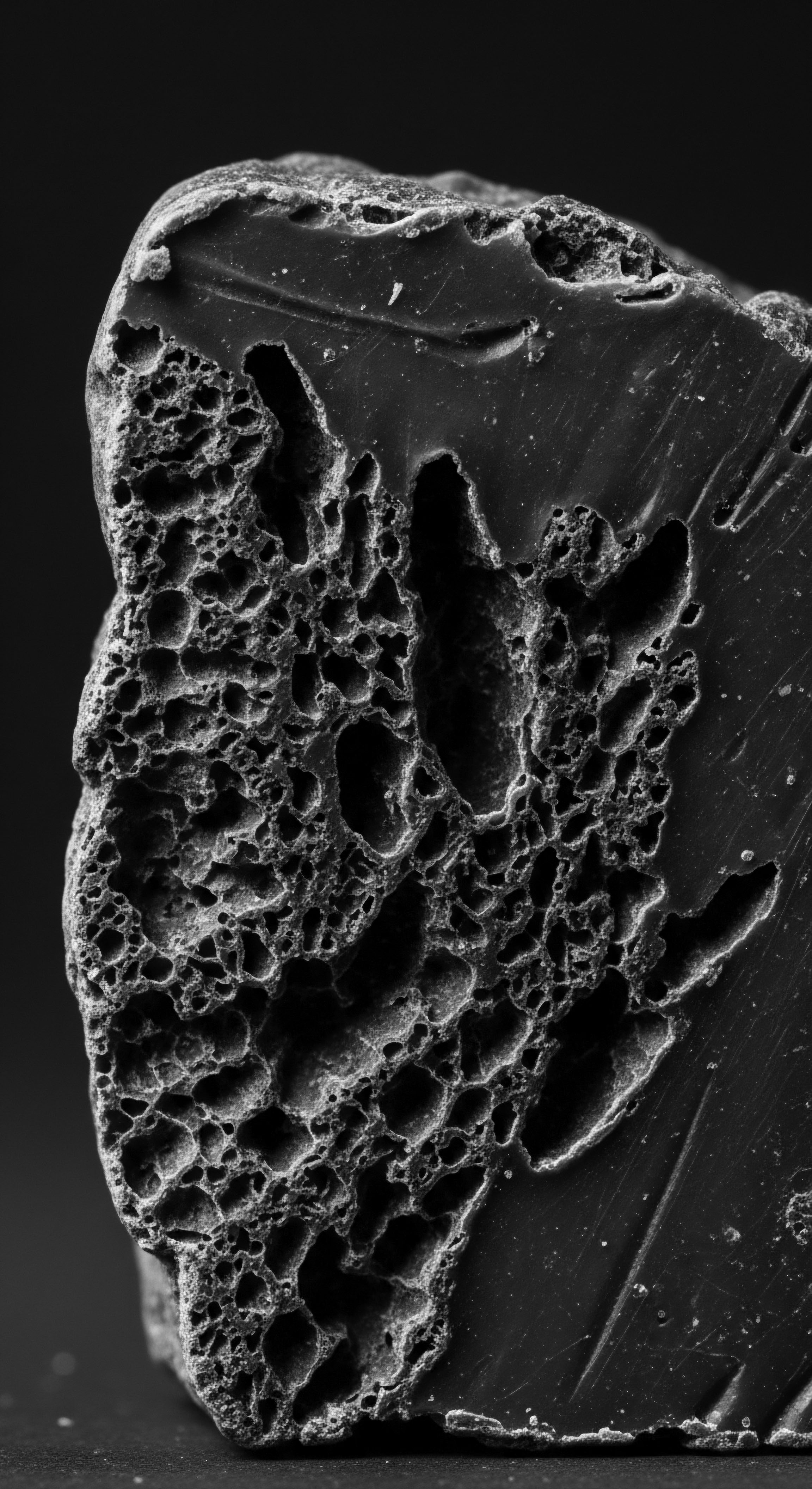
The Tender Thread: Living Traditions of Care and Community
The concept of African Cleansing was deeply intertwined with the social fabric of communities. Hair rituals served as rites of passage, marking significant life stages such as birth, coming-of-age, marriage, or mourning. The intricate styling and cleansing processes often required hours, fostering environments where elders imparted wisdom, shared stories, and strengthened familial bonds.
These communal grooming sessions, sometimes taking place under large trees in village centers, transformed simple acts of cleansing into profound moments of connection and cultural transmission. The act of tending to another’s hair became an expression of love, respect, and shared heritage.
Communal hair care practices served as vital conduits for cultural transmission, reinforcing social bonds and ancestral wisdom.
The historical journey of textured hair, especially within the diaspora, reveals the profound resilience embedded in these cleansing traditions. During the transatlantic slave trade, when enslaved Africans were forcibly stripped of their traditional tools and practices, the very act of maintaining their hair, even with limited resources, became an act of resistance and cultural preservation. The shaving of heads by colonial authorities and slave traders was a deliberate attempt to dehumanize and erase identity, underscoring the deep value placed on hair within African cultures. Despite these oppressive forces, ancestral methods of cleansing and care persisted, adapted, and evolved, a testament to the enduring spirit of these communities.
Consider the use of Shea butter, a staple ingredient across West Africa, derived from the nuts of the shea tree. Its rich moisturizing properties were, and remain, central to conditioning and protecting textured hair. The production of shea butter, often a communal activity among women, embodies the economic and social dimensions of traditional African cleansing.
This butter was not just a product; it was a symbol of communal labor, sustainable practices, and the deep understanding of natural resources for well-being. Its application after a gentle cleansing ritual would seal in moisture, guarding against dryness and breakage, particularly beneficial for the unique structure of coily and kinky hair types.
The transmission of these practices was largely oral, passed from mother to daughter, from elder to youth, during these shared moments of care. This pedagogical approach ensured that the deep meaning and proper application of African Cleansing, with its emphasis on honoring textured hair, remained vibrant despite external pressures. It created a collective memory, a shared understanding of beauty and self-worth rooted in ancestral wisdom. This intergenerational continuity represents the tender thread that connects past, present, and future textured hair experiences.
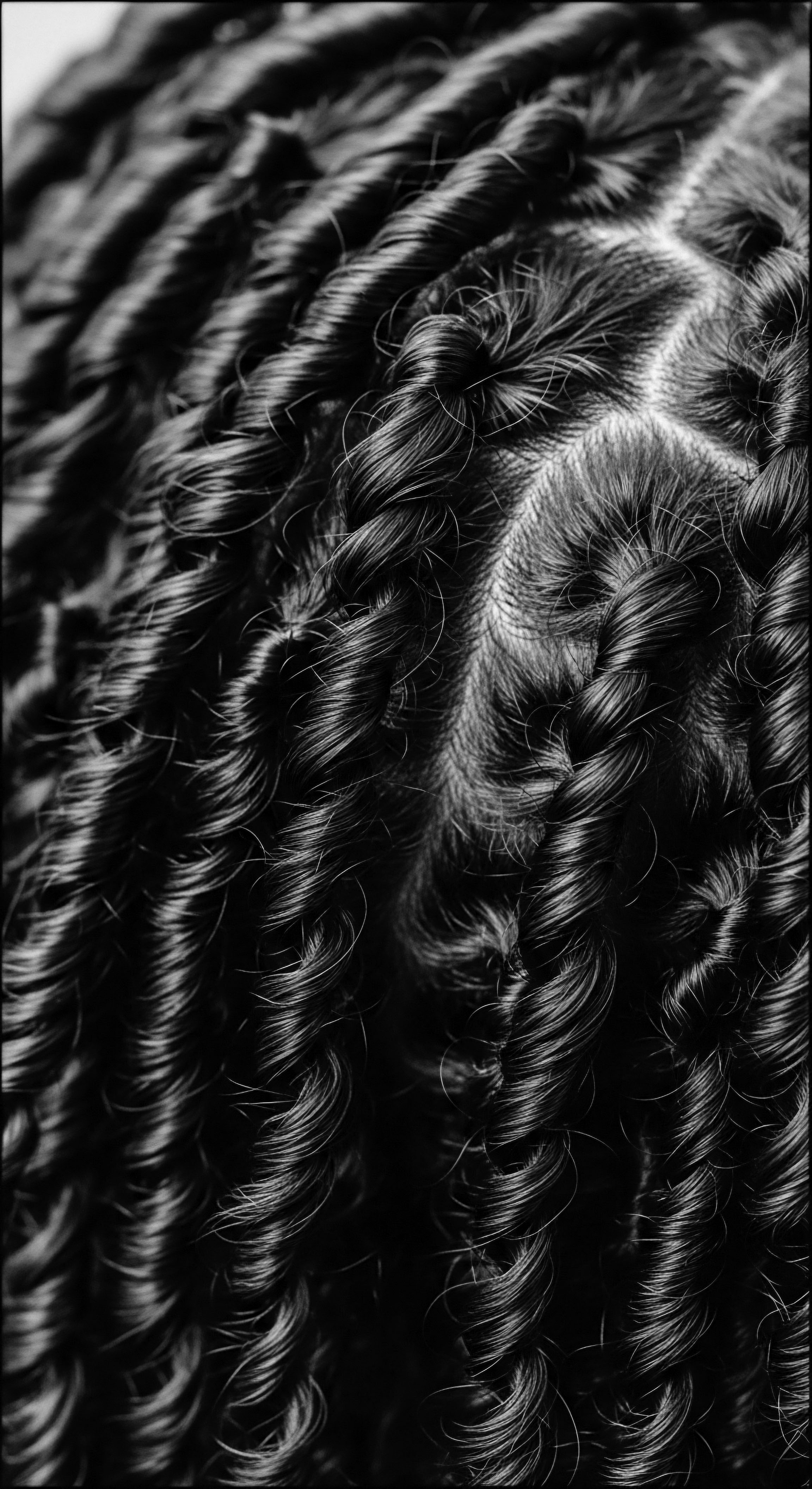
Academic
The academic elucidation of “African Cleansing” transcends a mere descriptive account, demanding a rigorous, expert-level examination of its profound meaning and multifaceted implications. It represents a sophisticated epistemological framework for hair care, one that integrates ethnobotanical science, cultural anthropology, and the enduring psychological impact of hair on identity. This concept is not a monolithic entity but a dynamic, regionally diverse, and historically responsive set of practices, each a testament to human ingenuity and resilience in nurturing textured hair.
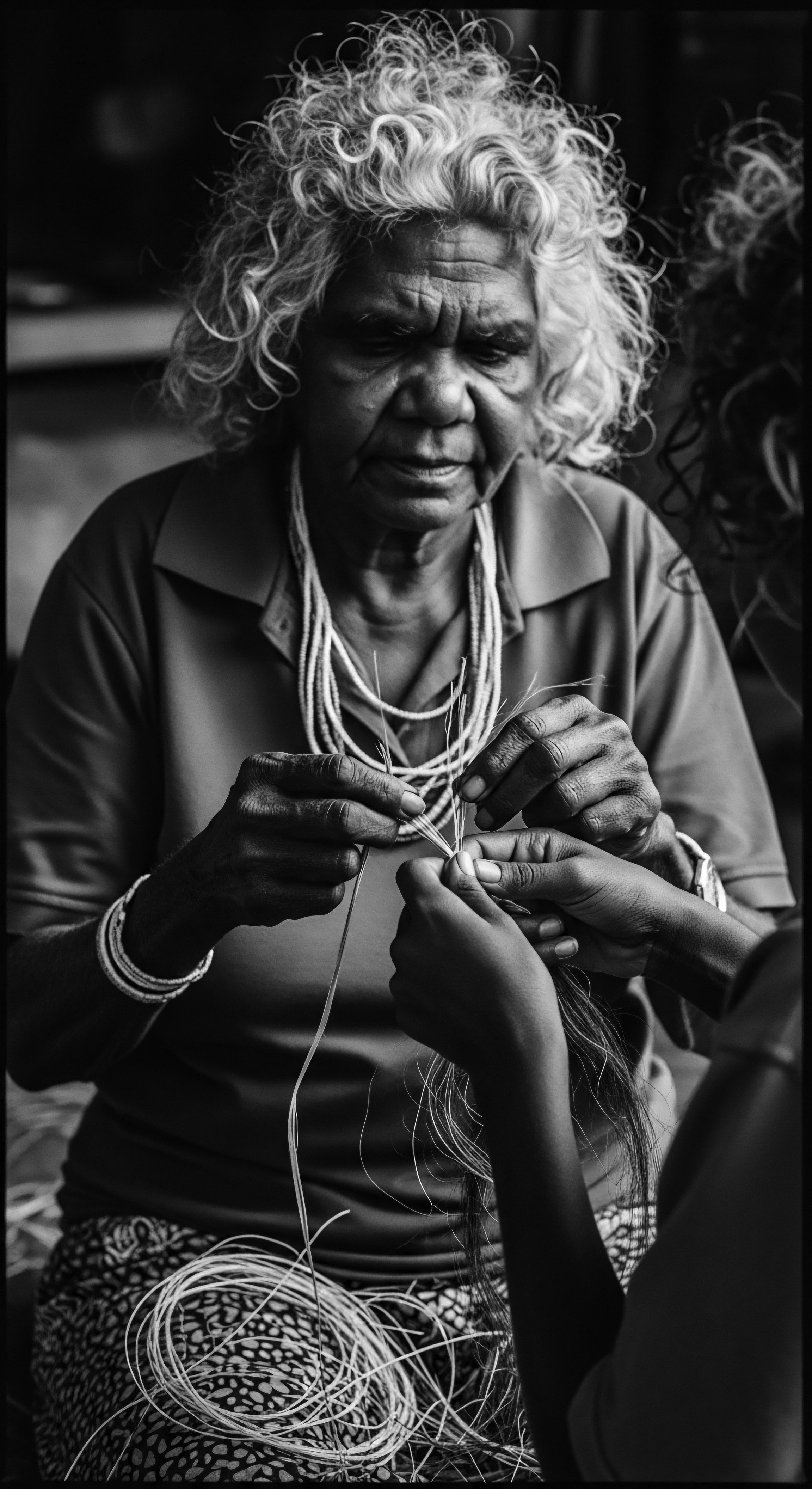
Delineating the African Cleansing: A Comprehensive Interpretation
African Cleansing, from an academic vantage, signifies a deliberate, culturally informed methodology for maintaining scalp health and hair vitality, predicated on the principle of minimal intervention and maximal nourishment. It is a paradigm that privileges the intrinsic structural integrity of textured hair, recognizing its unique needs for moisture retention and protection from environmental stressors. This approach contrasts sharply with the Western-centric model of frequent, harsh lathering and stripping, often necessitating subsequent intensive conditioning.
Instead, African Cleansing prioritizes gentle, restorative purification, preparing the hair and scalp for subsequent treatments that fortify the hair shaft and preserve its natural oils. The philosophical underpinning involves a profound respect for the hair as a living entity, deeply connected to one’s lineage and spiritual well-being.
African Cleansing is a sophisticated methodology for textured hair care, prioritizing gentle, restorative purification and deep nourishment rooted in ancestral wisdom.
The historical continuity of these practices, even in the face of immense societal upheaval, provides a compelling case study in cultural persistence. The transatlantic slave trade, a cataclysmic disruption, sought to systematically dismantle African identities, often beginning with the forced shaving of hair. This act, beyond its physical manifestation, was a profound psychological assault, severing a tangible link to ancestral practices and communal identity.
Yet, the resilience of those enslaved and their descendants saw the adaptation and quiet preservation of cleansing rituals, utilizing whatever natural resources were available, from clay to various plant extracts, often in secret. This adaptation speaks to the inherent value and efficacy of African Cleansing, a system so vital it could survive the most brutal attempts at erasure.
Consider the Basara Arab women of Chad, whose traditional use of Chebe powder exemplifies a highly specialized form of African Cleansing and care. While not a direct cleansing agent, Chebe powder, composed of ingredients such as lavender crotons and cherry kernels, is applied to damp, sectioned hair and then braided, left for days to deeply condition and prevent breakage. This practice, passed down through generations, underscores a nuanced understanding of hair biology: for coily and kinky textures, length retention is often more about minimizing breakage than accelerating growth from the root.
The Chebe ritual, therefore, represents a cleansing of accumulated damage and vulnerability, a fortification that allows the hair to flourish. It is a preventative and restorative approach, ensuring the hair’s integrity between more infrequent, gentle washes.
The scientific lens reveals that many traditional African cleansing ingredients possess properties that modern cosmetology now seeks to replicate. For example, African Black Soap, a traditional West African cleanser, is rich in antioxidants, potassium, and magnesium, alongside vitamins A and E. These compounds contribute to scalp health by nourishing the skin and possessing antimicrobial qualities, creating a balanced environment conducive to hair growth.
The gentle saponins present in plant ashes provide effective cleansing without the harshness of synthetic sulfates common in many commercial shampoos. This aligns with the concept of preserving the scalp’s natural microbiome and lipid barrier, a contemporary scientific understanding that echoes ancestral wisdom.
The psychosocial dimensions of African Cleansing are equally significant. Hair, as a visible aspect of self, has historically been a potent symbol of identity, status, and resistance for Black and mixed-race individuals. The ritualistic nature of cleansing and styling, often performed communally, reinforced a sense of belonging and cultural pride. The very act of caring for textured hair using traditional methods becomes a reclamation of heritage, a defiant affirmation of beauty standards that diverge from Eurocentric norms.
A study from 2017 to 2020 indicated a 23% increase in Black women preferring their natural hair texture, alongside a 26% decrease in chemical relaxer sales from 2010 to 2015, demonstrating a contemporary resurgence of practices aligned with the principles of African Cleansing and a conscious return to ancestral aesthetics. This statistic powerfully illuminates the ongoing connection between hair choices, heritage, and self-definition within Black communities, showcasing a widespread movement towards embracing and valuing natural hair, which inherently involves a re-evaluation of cleansing and care methods.
Furthermore, the academic perspective recognizes the therapeutic aspects of African Cleansing. The mindful application of natural oils, butters, and herbal infusions, often accompanied by massage, promotes blood circulation to the scalp, reduces tension, and offers a sensory experience that grounds the individual in their body and lineage. This ritualistic engagement moves beyond superficial cleanliness, extending into realms of holistic wellness, stress reduction, and spiritual connection.
The deliberate pace of these traditional practices, allowing for deep absorption of botanical benefits and communal interaction, counters the hurried, often isolating routines of modern hair care. It is a profound meditation on self-care, deeply informed by a collective ancestral memory.
The interpretation of African Cleansing from an academic standpoint necessitates a nuanced understanding of its regional variations. While overarching principles of natural ingredients and gentle care persist, specific botanicals and methods differ significantly across the continent and throughout the diaspora, reflecting diverse ecological zones and cultural adaptations. For instance, the traditional hair care practices of the Himba tribe in Namibia, involving a paste of ochre, butter, and herbs, offer a distinct cleansing and conditioning approach compared to the use of African Black Soap in West Africa. Each variation contributes to the rich tapestry of African Cleansing, demonstrating a localized yet universally heritage-driven commitment to hair health and identity.
In conclusion, African Cleansing is a comprehensive, historically resilient, and scientifically astute system of hair and scalp care. Its definition encompasses a rich interplay of ethnobotanical knowledge, cultural symbolism, and psychosocial well-being. The sustained preference for natural hair, as evidenced by recent trends, signifies a powerful reaffirmation of this ancestral wisdom, solidifying African Cleansing’s place as a vital, living tradition in the ongoing narrative of textured hair heritage.
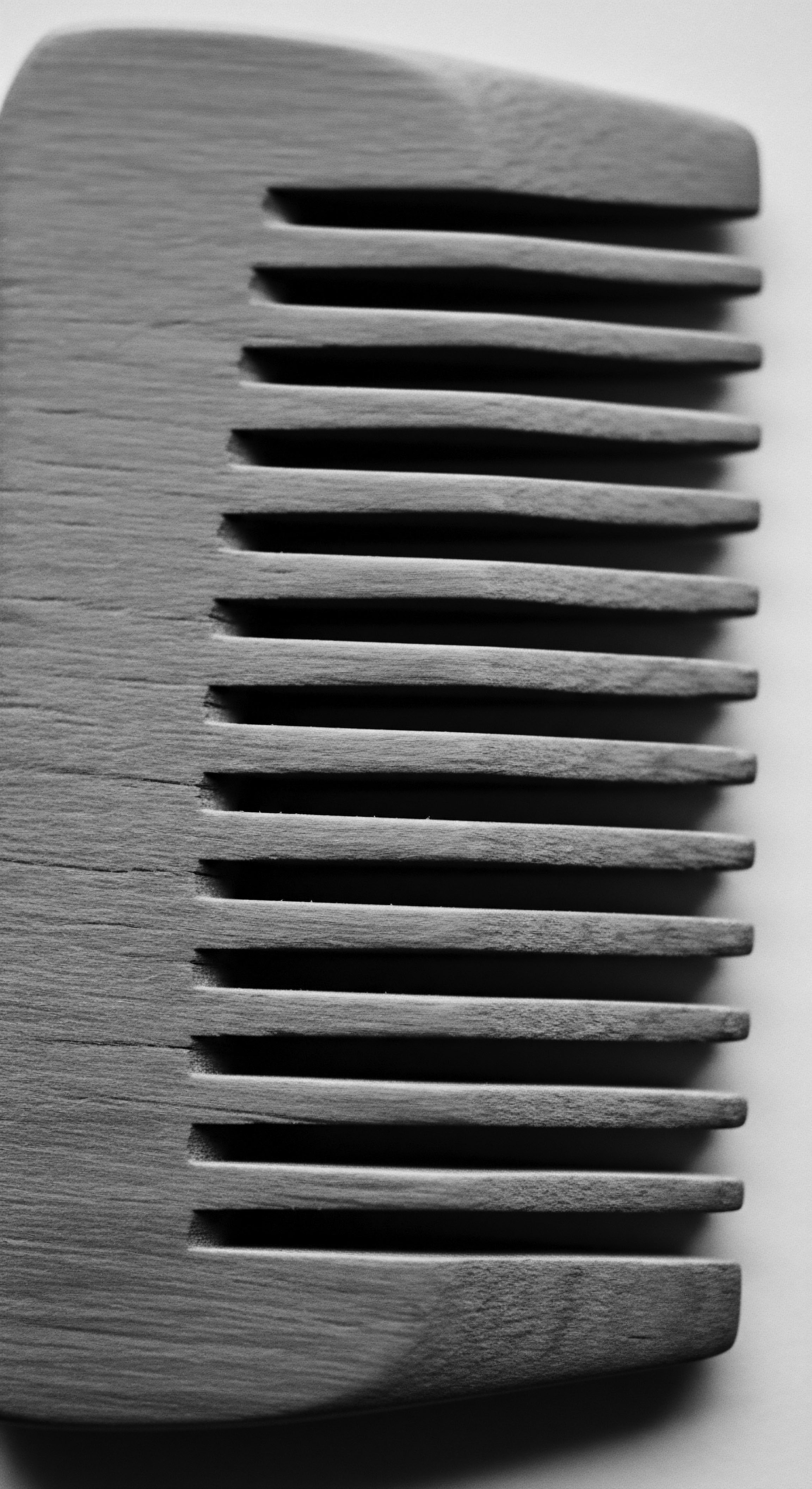
Reflection on the Heritage of African Cleansing
The journey through the meaning of African Cleansing reveals more than just historical facts or scientific principles; it unveils a profound meditation on the very soul of a strand. Each coil, each kink, each wave holds within its structure the echoes of ancestral wisdom, the resilience of generations, and the vibrant spirit of a heritage deeply intertwined with hair. African Cleansing, as a living concept, continues to whisper stories of self-reverence and communal care, inviting us to listen closely to the rhythms of nature and the whispers of our forebears.
This enduring legacy reminds us that hair care is never merely a cosmetic endeavor. It is a sacred dialogue with our past, a conscious act of honoring the paths walked by those who came before us. The hands that once kneaded shea butter, mixed clay, or braided intricate patterns were not just styling; they were preserving identity, fostering community, and transmitting a profound understanding of well-being.
These practices, born from deep ecological attunement and communal solidarity, offer a powerful antidote to the isolating and often superficial approaches of modern beauty culture. They beckon us towards a more holistic connection with our bodies, our communities, and the very earth that sustains us.
The vibrant resurgence of natural hair movements globally is a testament to the enduring power of African Cleansing. It is a collective remembering, a joyful reclamation of inherent beauty and strength. As we tend to our textured crowns with the wisdom of centuries, we participate in a continuous act of cultural affirmation, weaving new narratives of self-acceptance and empowerment. The essence of African Cleansing persists, not as a relic of the past, but as a dynamic, evolving force, guiding us towards a future where every strand tells a story of heritage, care, and unbound possibility.
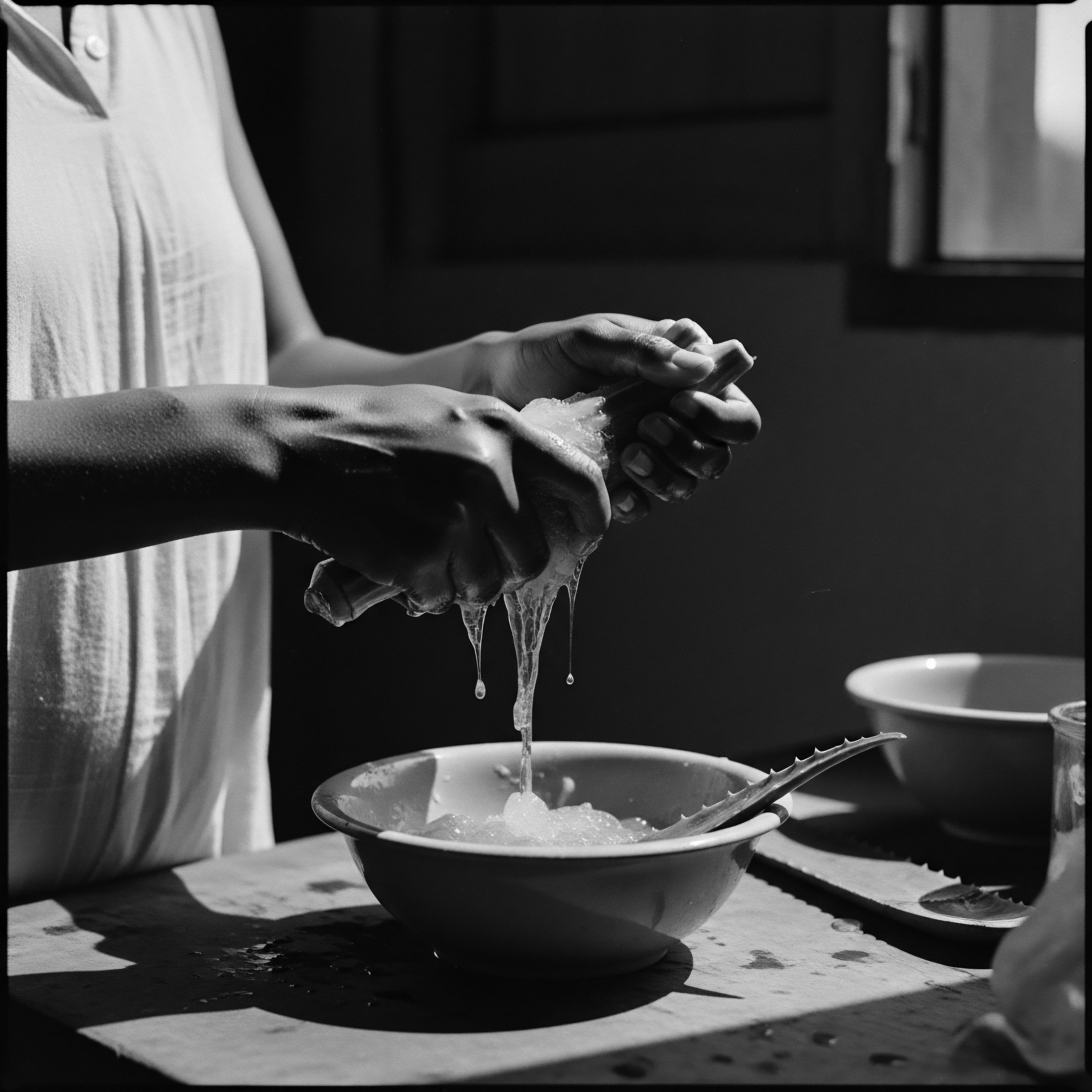
References
- Byrd, A. & Tharps, L. L. (2001). Hair Story: Untangling the Roots of Black Hair in America. St. Martin’s Press.
- Collins, P. H. (2000). Black Feminist Thought: Knowledge, Consciousness, and the Politics of Empowerment. Routledge.
- Dove, A. & Powers, J. (2018). The African-American Woman’s Guide to Hair Care. Createspace Independent Publishing Platform.
- Lester, N. A. (2000). Black Hair: Art, Culture, and History. Universe.
- Majali, M. et al. (2017). Hair and Identity in African Cultures. University of Cape Town Press.
- Mbilishaka, A. et al. (2020). Hair as a Cultural Identifier: A Psychosocial Perspective. Journal of Black Psychology.
- Patton, T. D. (2006). African American Hair: An Examination of Identity, Politics, and Popular Culture. Peter Lang.
- Rosado, R. (2003). The Grammar of Hair: Identity and Communication in the Black Diaspora. Duke University Press.
- Steele, S. (2016). The Content of Our Character: A New Vision of Race in America. Harper Perennial.
- Thompson, C. (2009). Black Women and the Quest for the Straight Hairstyle. Rutgers University Press.
- Thompson, C. (2019). Beauty in a Box: Detangling the Roots of Black Hair in America. Beacon Press.
- Utsey, S. O. et al. (2008). The Impact of Racism on the Mental Health of People of African Descent. Journal of Counseling & Development.
- Weitz, R. (2000). Rapunzel’s Daughters: What Women’s Hair Tells Us About Women’s Lives. Farrar, Straus and Giroux.
- White, D. G. (2005). Ar’n’t I a Woman?: Female Slaves in the Plantation South. W. W. Norton & Company.
- Zeleza, P. T. (2005). African Diasporas: Toward a Global History. Indiana University Press.

